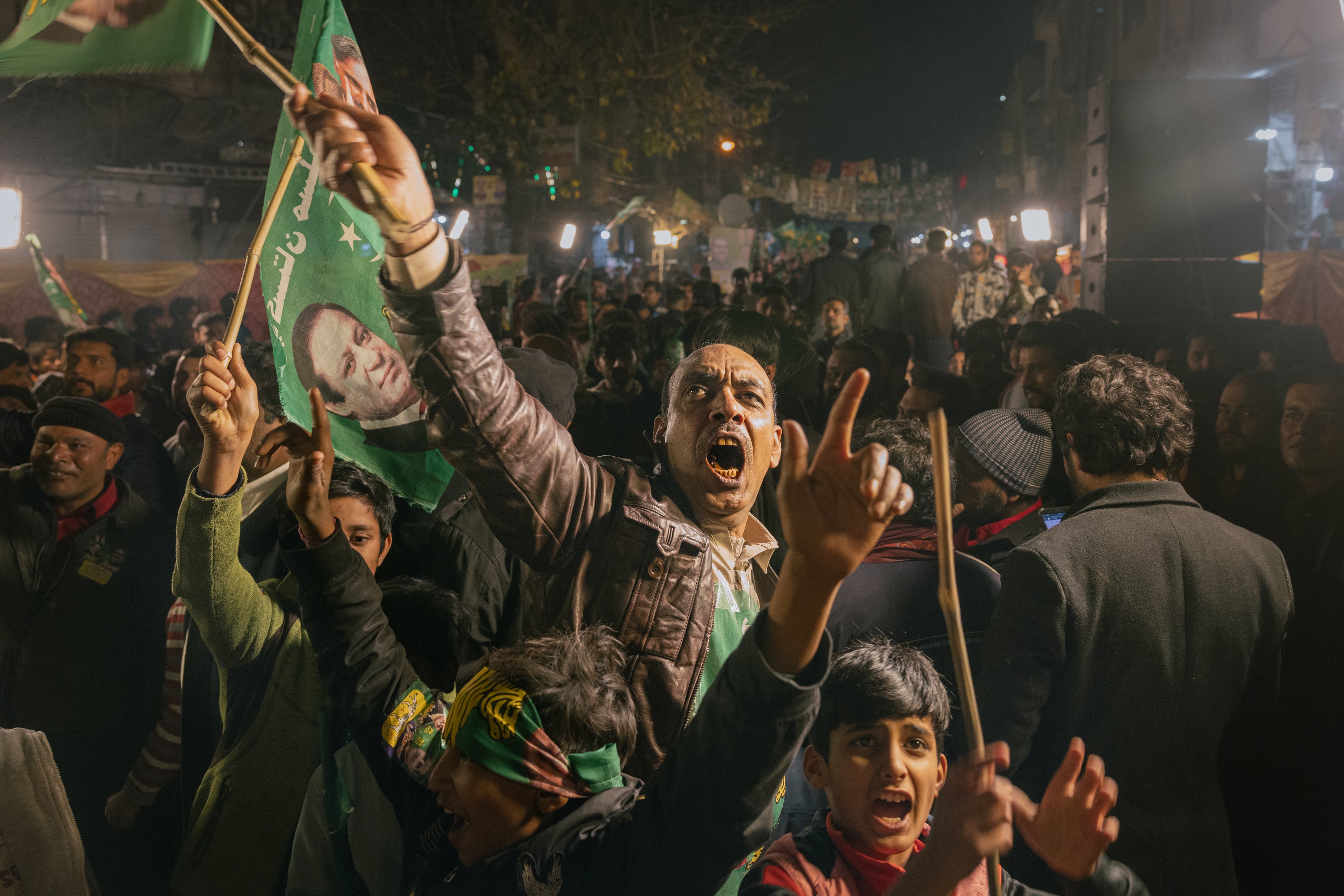Pakistan PM pleads for people to vote in election amid fears of record low youth turnout
Utilise the energies of youngsters to strengthen the democracy in Pakistan, the caretaker leader urges

Your support helps us to tell the story
From reproductive rights to climate change to Big Tech, The Independent is on the ground when the story is developing. Whether it's investigating the financials of Elon Musk's pro-Trump PAC or producing our latest documentary, 'The A Word', which shines a light on the American women fighting for reproductive rights, we know how important it is to parse out the facts from the messaging.
At such a critical moment in US history, we need reporters on the ground. Your donation allows us to keep sending journalists to speak to both sides of the story.
The Independent is trusted by Americans across the entire political spectrum. And unlike many other quality news outlets, we choose not to lock Americans out of our reporting and analysis with paywalls. We believe quality journalism should be available to everyone, paid for by those who can afford it.
Your support makes all the difference.Pakistan’s caretaker prime minister Anwaar-ul-Haq Kakar urged people to come out and vote in the upcoming general elections amid fears of low voter turnout among youngsters.
The youth of Pakistan should be engaged in the political system and their energies should be utilised to strengthen democracy in the country, the prime minister said in a podcast on Monday.
On being asked why thousands of Pakistanis are “dying” to leave their south Asian homeland, the prime minister said young people have left due to large-scale opportunities offered by in foreign universities and schools and the allure of the western culture.
"Even if I take the statistics for the sake of argument, 65 per cent of the youth result in millions of young Pakistanis. I believe the majority still sees their future in Pakistan,” he said, pointing to the exodus of Pakistani nationals to European nations, North America, and Australia.
Mr Kakar claimed that a lot of youngsters also wanted to return to Pakistan. “I view them as assets from the economic point of view, not as a liability for Pakistan.”
He added that the country’s political parties should be democratic minded and their leadership should be elected in a democratic manner to fortify the country.
Pakistan is holding elections for a new parliament on Thursday. At least 44 political parties are in the fray for a share of the 266 seats that are up for grabs in the National Assembly, or the lower house of parliament, with an additional 70 seats reserved for women and minorities.
In what is expected to be a tumultuous event, the new parliament will choose the country’s next prime minister. If no party wins an outright majority, then the one with the biggest share of assembly seats can form a coalition government.
With the removal of Imran Khan – a strong candidate and a cricket hero-turned-politician now behind bars – experts have said former state leader Nawaz Sharif is likely to garner more votes than any other player in the race.
The ruling party will need to command at least half of the 226 National Assembly seats up for grabs.
Nuclear-armed Pakistan is the fifth most populous country in the world and an unpredictable Western ally. It borders Afghanistan, China, India and Iran – a region rife with hostile boundaries and tense relations.
A strong and stable Pakistani government will send out a message to the international community that there is a solid chance of containing any unrest, addressing economic challenges and stemming illegal migration as Islamabad continues to battle debt-risk.
But experts have warned of anti-establishment sentiment brewing in Pakistan, which can further sow the seeds of more instability.
“People are angry. The dislike of the army has increased tremendously, and it’s more noticeable,” military affairs scholar Ayesha Siddiqa told the Associated Press.
Join our commenting forum
Join thought-provoking conversations, follow other Independent readers and see their replies
Comments